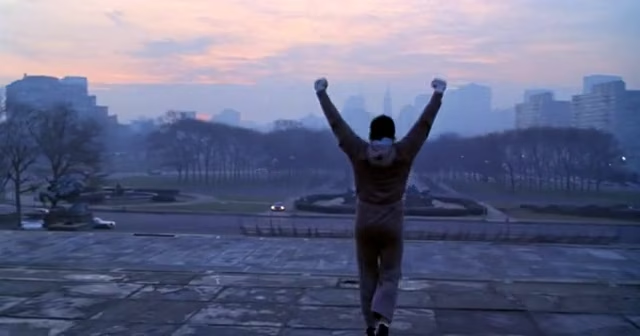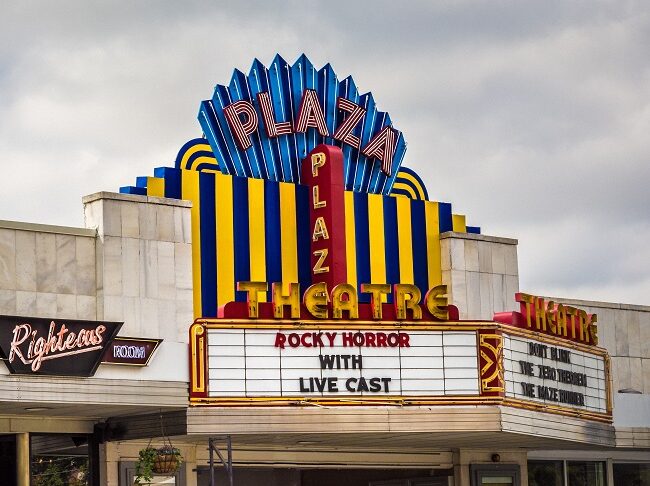Movies are not just mindless methods of entertainment, but rather a lens through which we can understand the culture and historical background of specific eras. Whether it’s by introducing new technology, storytelling techniques, or production design, filmmakers have constantly been finding new ways to portray current and past events through their art. From the Golden Age of Hollywood to the rise of digital filmmaking, every period has left an indelible mark on the industry. In this article, I will rank the best decades in film from the 1950s to the 2010s, focusing on influential films that have defined each era. As it is impossible to encompass seven decades of filmmaking in a single article, this list serves as a subjective reflection on my personal experience with film, taking into account the monumental cinematic events of every era.
1. 1990s

Influential Films: Schindler’s List, The Shawshank Redemption, Goodfellas, Forrest Gump, Fight Club, The Silence of the Lambs, The Lion King
The 1990s was headlined by some of the greatest directors of all time, including Scorcese, Spielberg, Tarantino, and Spike Lee. This pinnacle of cinema history features both an unsurpassed peak of some of the best films of all time, along with perhaps the most extensive catalog of high quality films. The highest grossing film of the decade is 1997’s major studio hit Titanic, but this era was characterized by a balanced diet of both blockbusters and independent studio films. Movies like The Blair Witch Project, The Big Lebowski, and Pulp Fiction are all fan favorites from relatively unknown studios, while movies like Jurassic Park, and The Phantom Menace stand out as major studio releases from Universal and 20th Century Fox, respectively. You also can’t talk about the nineties, without mentioning Walt Disney. With releases like The Lion King, Toy Story, Aladdin, Hercules, and Mulan, the 1990s is the apex of Disney’s original filmmaking history in my opinion.
2. 1970s

Influential Films: The Godfather, Rocky, Jaws, Grease, Star Wars, The Exorcist, The Sting, American Graffiti
The 1970s ranks as my second greatest era in film history due to its iconic scenes and remarkable influence. The New Hollywood era provided audiences with more impactful, creative, and personal projects than ever before. Films like Taxi Driver, Network, and One Flew Over the Cuckoo’s Nest present deep themes with breathtaking directorial and acting performances. The decade also laid the groundwork for the modern horror genre. Films such as The Exorcist, and Don’t Look Now pioneered elements of psychological horror, while movies like Halloween, and The Texas Chainsaw Massacre established the slasher sub-genre. Music was also a major part of this era, with John Williams honing in on his craft, producing the iconic scores of Jaws, and Star Wars. Meanwhile, films like The Harder They Come, and Grease are now known as classics due to their era-defining soundtracks.
3. 2010s

Influential Films: Whiplash, Parasite, La La Land, The Avengers, Interstellar, Spider-man: Into the Spider-verse
The 2010s featured legendary directors like Tarantino, and Scorcese adding to their already renowned catalogs, while rising filmmakers Christopher Nolan, Damien Chazelle, and Wes Anderson perfected their styles. The Marvel Cinematic Universe consistently captivated audiences throughout the 2010s with high budget blockbusters, whereas films like Moonlight, Parasite, and Get Out wowed the critics. The 2010s is distinguished by its technological advancements, as the film industry became simultaneously more accessible, and impenetrable. Movies like Sean Baker’s Tangerine proved that low budget films could be successful, yet the box office was constantly dominated by large studio franchises. With the sheer volume of films being produced, this decade yielded numerous creative masterpieces, along with tons of mediocre releases.
4. 1980s

Influential Films: Do the Right Thing, The Empire Strikes Back, E.T., Raging Bull, Raiders of the Lost Ark, Ferris Bueller’s Day Off
The 1980s featured the rise of the blockbuster era following the more experimental seventies. This decade set up various characters that have become household names. Many of the major franchises from the eighties like Indiana Jones, Ghostbusters, Top Gun, and The Karate Kid have countless sequels and spin offs that span all the way into the 2020s. The decade’s films often built on the successes of the 1970s demonstrated with releases like A Nightmare on Elm Street, The Evil Dead, and Rocky IV. Visuals took center stage for many major movies of the eighties, as special effects were improving. Ridley Scott’s Blade Runner was one of the leaders in this department. Overall the eighties was a very transformative period of film that produced many beloved classics, but struggled to live up to the critically acclaimed masterpieces of the seventies.
5. 2000s

Influential Films: The Dark Knight, The Pursuit of Happyness, Inglourious Basterds, Up, Fantastic Mr. Fox, Catch Me If You Can
CGI and digital film were major components of the 2000s period. Avatar and The Lord of the Rings are both regarded as having some of the best visual effects of all time. In this decade, Disney continued their run of original releases with classics like Finding Nemo, The Incredibles, Wall-E, and Up. Simultaneously, there was a rise in dramas that addressed the heavy-hitting issues of the time like economic uncertainty and war anxiety. Movies like The Pursuit of Happyness, The Notebook, and The Pianist all received recognition for their emotional storytelling. This decade also introduced the rise of the superhero genre with classics like Ironman, Spiderman, and Christopher Nolan’s Batman series. The 2000s era was defined by a growing variety in film, and establishing the technology of the 21st century.
6. 1950s

Influential Films: 12 Angry Men, Singin in the Rain, Rear Window, On the Waterfront, Lady and the Tramp
Much of the entertainment in the 1950s was driven by the ongoing Cold War tension. This led to many psychological thrillers, and anti-communist sci-fi films such as War of the Worlds, and Invasion of the Body Snatchers. Highlighted by works like Rear Window, North by Northwest, and Vertigo, this decade saw the solidification of Alfred Hitchcock as one of the greatest directors of all time. In addition, the fifties broadened the use of color in film with movies like Singin in the Rain, and The Robe. Film noir was integral to the start of the decade with notable works like Sunset Boulevard, and Ace in the Hole. This decade was a step for growth in the film industry in many areas and subsequently produced an abundance of highly influential cinema.
7. 1960s

Influential Films: 2001: a Space Odyssey, Psycho, Mary Poppins, West Side Story, Butch Cassidy and the Sundance Kid
The 1960s served as a transition period into the New Hollywood era. Large studio films like Spartacus, and Breakfast at Tiffany’s came out in the early sixties, while movies like The Graduate and Midnight Cowboy came out in the late sixties, and symbolized the success of a new era in film, focused on character-driven narratives. Also throughout the sixties, large musical productions were at their peak with titles like Mary Poppins, The Sound of Music, and My Fair Lady captivating audiences. This period of film still tackled important issues of the times as well. The civil rights movement’s themes were visualized in this decade through films like To Kill a Mockingbird, and A Raisin in the Sun, which portrayed the effects of segregation. The decade’s major industry shift makes it extremely difficult to categorize, however, I ultimately ranked this decade in the lowest spot. This decision is driven by my opinion that despite the quantity of historic cinema in this era, every other decade’s top films are considerably better than the best of the sixties.






